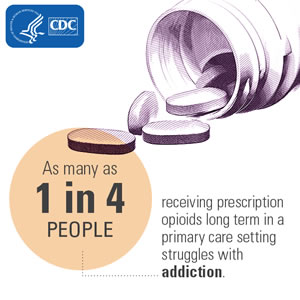
Opioid Response FAQ
FREQUENTLY ASKED QUESTIONS
March 26, 2018
The opioid crisis continues to have a devastating impact on the people and communities of Minnesota. This epidemic is a public health problem that must be addressed with urgency.
Facts About Opioids Misuse
- As many as one in four people who receive prescription opioids misuse their medication.
- In 2016, Minnesota Department of Health cited 675 deaths by drug overdose; the Twin Cities metro area has the highest rates of death by drug overdose in the state.
- 66% of all drug overdoses (likely more) in the U.S. were caused by opioids.
- In Minnesota, more than one person dies every day from an opioid overdose.
- Drug overdose is the leading cause of death in people under the age of 50.
- U.S. life expectancy has fallen for the last two years, from 78.9 years in 2014 to 78.6 in 2016. The rise in the number of drug overdose deaths is a clear driver of this trend. Life expectancy is considered an important indicator of the general well-being of a nation.
- While the overdose death rate is staggering, it isn’t even the full view of the devastation caused by opioid misuse. Individuals, families and communities impacted by addiction are suffering irreparable damage.
Frequently Asked Questions
How is United Family Medicine Addressing the Opioid Addiction Problem?
With a team of dedicated physicians, mental health providers and staff, UFM is working tirelessly to develop the broad-based foundation required to bring real and lasting change to how the medical community treats and prevents the devastation of opioid misuse and addiction. This focused effort includes professional training for all providers, an immediate focus on tapering the use of opioids in current patients, changes to prescribing policies and practices for patients that suffer from chronic pain, all within UFM’s established integrated behavioral health framework.
How is this initiative different from others?
- The comprehensive initiative will provide evidence-based training and educational resources to all UFM medical providers making it possible for them to provide medication-assisted treatment (MAT) on-site. MAT more commonly requires a patient to be in a treatment facility.
- Training will include resources on trauma-informed care, suicide prevention, and opioid abuse, including the use of live and virtual self-management resources.
What specific steps are being taken by UFM?
- Building on existing resources to treat patients with medication-assisted treatment, UFM will leverage their integrated behavioral health services and a robust referral process to outside addiction treatment services as needed.
- MAT combines a medication called buprenorphine (Suboxone) with counseling. It has a track record of success for easing the withdrawal from opioid dependence but requires frequent check-in visits, drug monitoring tests, and prescription refills for months or even years. All UFM medical providers, including the 21 Family Medicine Residents (future providers) will become certified in prescribing Suboxone, which eliminates cravings for heroin or pain pills.
- UFM will use safe prescribing practices and evidence-based practices for opioid use disorder treatment. Studies repeatedly show that patients have the highest chance of successful opioid addiction treatment when their primary care physician works with a team of non-physicians to deliver MAT, which features a coordinated care model.
- UFM developed a multidisciplinary Opioid Safety Clinic composed of two physicians, mental health professionals, nurses and care coordinators. The Clinic is changing the policies, procedures and processes for patients who currently using narcotics to manage chronic pain.
- Long-term commitment to creating needed recovery support and community response systems through partnerships with organizations, rehabilitation facilities, and other health care providers throughout the community to not only provide primary health care services during treatment and ongoing support post-rehabilitation, but also to work upstream from the epidemic.
Where should patients/families go to get more information?
United Family Medicine offers information online at UnitedFamilyMedicine.org/in-the-news/opioid-response-faq or patients can call 651-241-1000 for information or to make an appointment.

